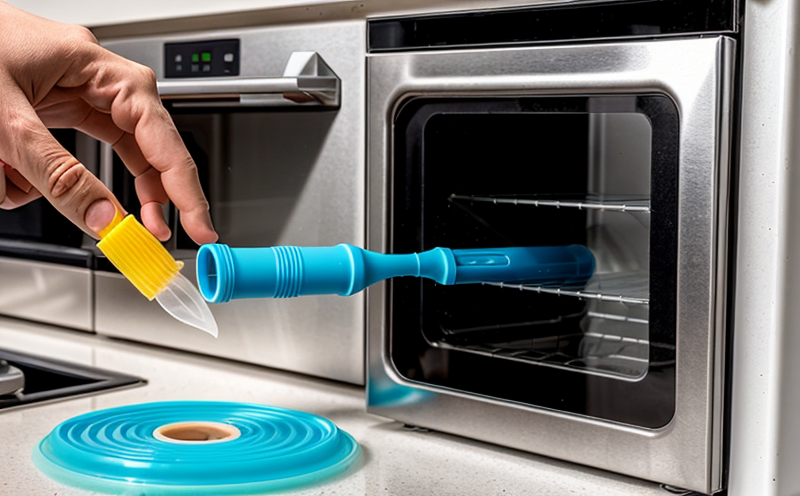ISO 527 Household Plastics Tensile Strength Testing
The ISO 527 household plastics tensile strength testing is a critical standard used to evaluate the mechanical properties of plastic materials commonly found in domestic applications. This service ensures that products meet stringent quality and safety standards, thereby enhancing consumer trust and product reliability.
ISO 527-4 specifies the procedure for tensile testing of thermoplastics using dumbbell-shaped specimens. These tests are essential for industries dealing with household plastics such as food containers, toys, packaging materials, and other items that come into contact with consumers on a daily basis.
The process involves preparing standard specimens according to ISO 527-4 specifications. Specimens are typically cut from the plastic material in a dumbbell shape, ensuring uniformity across all samples. Once prepared, these specimens undergo testing under controlled conditions using an electronic tensile testing machine capable of applying precise loads.
The test aims at determining how much force is required to break or stretch the plastic specimen until it fractures. This measurement provides valuable insights into the material's strength and flexibility, which are crucial for predicting its performance in real-world applications.
After completing the tensile tests, results are analyzed based on predetermined criteria outlined within ISO 527-4 standards. These include maximum load at fracture point, elongation before breakage, modulus of elasticity (Young's Modulus), and other relevant parameters depending on the type of plastic being tested.
For household plastics specifically, this service ensures compliance with international safety regulations ensuring that products do not pose any risks when used in homes. It also helps manufacturers identify areas where improvements can be made regarding material selection or design changes to enhance product durability without compromising aesthetics or functionality.
In summary, ISO 527 household plastics tensile strength testing plays an indispensable role in maintaining high standards of quality and safety across various sectors including food packaging, toy manufacturing, and home appliance production. By adhering strictly to this international standard, companies can gain competitive advantages by producing safer products that meet global expectations.
- Enhanced Consumer Safety: Ensures that household plastics used in everyday items are free from harmful substances and comply with strict safety guidelines.
- Informed Decision Making: Provides data-driven evidence to support informed decisions about material choices, process optimization, and product development.
- Regulatory Compliance: Helps businesses stay compliant with international standards and local regulations related to household plastic products.
Benefits
The implementation of ISO 527 tensile strength testing offers numerous advantages both for manufacturers and consumers alike. Firstly, it guarantees the safety and reliability of household plastics used in various applications ranging from food packaging to children's toys. By ensuring that these materials meet rigorous performance criteria, this service helps protect users from potential hazards associated with substandard products.
Secondly, adhering to this international standard allows companies to differentiate themselves in competitive markets by offering superior quality goods backed by scientific validation. This can lead to increased market share and customer loyalty as consumers trust brands that demonstrate commitment to excellence through adherence to recognized standards.
Lastly, ISO 527 testing supports continuous improvement initiatives within organizations by providing actionable insights into areas where improvements are needed. Regular assessments based on these tests enable businesses to refine their processes, optimize designs, and ultimately deliver better products at lower costs.
Quality and Reliability Assurance
The importance of quality assurance cannot be overstated when it comes to household plastics testing. By leveraging ISO 527 tensile strength testing, manufacturers can establish robust systems that ensure consistent product performance across all batches produced.
A key aspect of this service is the ability to replicate test results consistently over time and between different laboratories. This consistency is achieved through strict adherence to ISO 527-4 procedures which outline precise specimen preparation methods and instrument calibration requirements.
Additionally, regular audits conducted by independent bodies verify compliance with these standards further enhancing confidence in the quality of tested products. These audits also help identify any deviations from expected outcomes allowing for timely corrective actions if necessary.
In conclusion, ISO 527 tensile strength testing serves as a cornerstone for building strong foundations of trust between manufacturers and consumers alike. Through its rigorous approach to evaluating mechanical properties, this service fosters an environment where reliability is paramount ensuring peace of mind for all parties involved in the supply chain.





